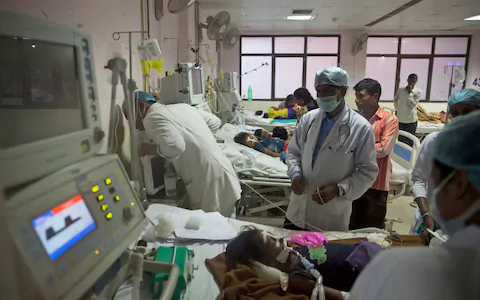Patients with rare disease get poor government support
 Any life-threatening disease that affects a hundred people in a population of one lakh can be considered ‘rare’. Primary immune deficiency disorders, inborn errors of metabolism, and Lysosomal Storage Disorders (LSD) such as Pompe disease and Gaucher disease are some of the commonly found rare diseases in the State of Kerala.
Any life-threatening disease that affects a hundred people in a population of one lakh can be considered ‘rare’. Primary immune deficiency disorders, inborn errors of metabolism, and Lysosomal Storage Disorders (LSD) such as Pompe disease and Gaucher disease are some of the commonly found rare diseases in the State of Kerala.
Treatments for such rare diseases often cost high. Now, patients with rare diseases and their families are in a stage where they have to look after themselves in the absence of government policy and lack of funds and facilities for diagnosis and treatment.
“The cost of treatment could be around ₹50 lakh a year since the medicines need to be imported,” Manoj Manghat, State coordinator, Lysosomal Storage Disorders Support Society, told The Hindu. Dr Manghat has lost his daughter to a rare disease. His son was also suffering from a similar disease. But his condition was diagnosed in time.
LSD’s are inherited metabolic disorders characterised by an abnormal build-up of toxic material inside cells as a result of enzyme deficiency.
The government doesn’t have a policy that might help the patients and their families now. The early diagnosis of rare diseases is often a challenge. Some of the symptoms of metabolic disorders are similar to other diseases and many doctors are not aware of them.
Dr Mohandas Nair of the Institute of Maternal and Child Health of the Government Medical College hospital, Kozhikode, says that the diagnostic tools were not easily available. Pointing out the fact that all doctors might not be familiar with the symptoms, he suggests prenatal screening to rule out the chance. ‘If a child in a family was diagnosed with the disease, the siblings also have a risk’, Dr Nair added.
The parents of 34 patients with rare diseases petitioned the Kerala High Court in 2017 seeking government help for treatment. Government medical college hospitals in Kottayam, Thiruvananthapuram, and Kozhikode were named nodal centres to address the needs of patients from the respective regions soon after.
Yet, the exact statistics of such patients are not available. Only the Amrita Institute of Medical Sciences and Research Centre, Kochi, has a genetic clinic. Around 700 patients from across the State had approached the clinic for treatment after it was set up in 2004.
Source: The Hindu
Image: The Telegraph